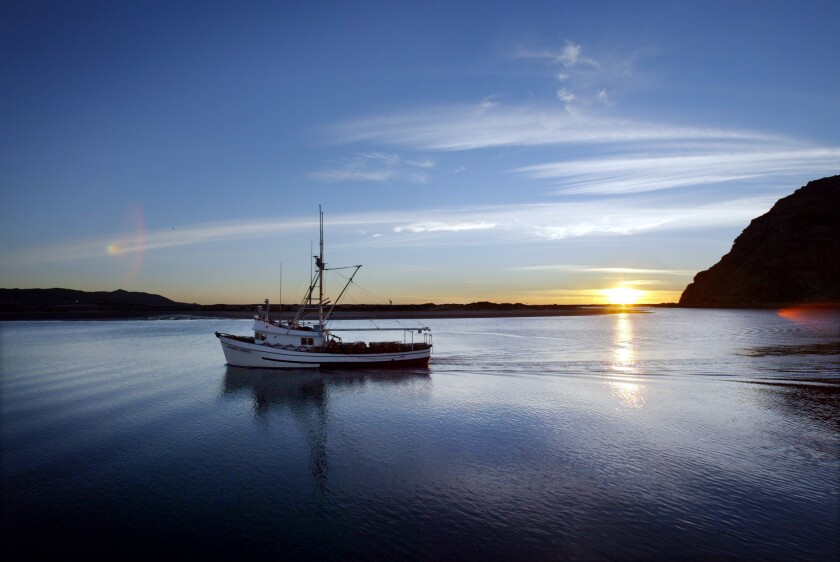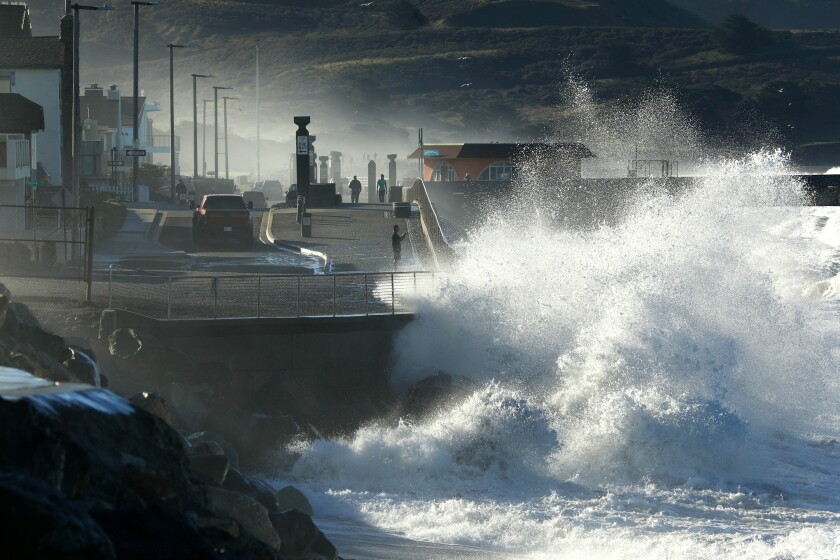California coastal waters rising in acidity at alarming rate, study finds
Published on by Water Network Research, Official research team of The Water Network in Technology
A commercial fishing boat heads out of Morro Bay. A study released Monday found that waters off the California coast are acidifying faster than the rest of the ocean.
Waters off the California coast are acidifying twice as fast as the global average, scientists found, threatening major fisheries and sounding the alarm that the ocean can absorb only so much more of the world’s carbon emissions.
A new study led by the National Oceanic and Atmospheric Administration also made an unexpected connection between acidification and a climate cycle known as the Pacific Decadal Oscillation — the same shifting forces that other scientists say have a played a big role in the higher and faster rates of sea level rise hitting California in recent years.
El Niño and La Niña cycles, researchers found, also add stress to these extreme changes in the ocean’s chemistry.
These findings come at a time when record amounts of emissions have already exacerbated the stress on the marine environment. When carbon dioxide mixes with seawater, it undergoes chemical reactions that increase the water’s acidity.
Across the globe, coral reefs are dying, oysters and clams are struggling to build their shells, and fish seem to be losing their sense of smell and direction. Harmful algal blooms are getting more toxic — and occurring more frequently. Researchers are barely keeping up with these new issues while still trying to understand what’s happening under the sea.
Scientists call it the other major, but less talked about, CO2 problem.
The ocean covers more than 70% of the Earth’s surface and has long been the unsung hero of climate change. It has absorbed more than a quarter of the carbon dioxide released by humans since the Industrial Revolution, and about 90% of the resulting heat — helping the air we breathe at the expense of a souring sea.
Oceanic uptake of CO2 can mitigate climate change, but also results in global ocean acidification. Ocean acidification-related changes to the marine carbonate system can disturb ecosystems and hinder calcification by some organisms. Here, we use the calcification response of planktonic foraminifera as a tool to reconstruct the progression of ocean acidification in the California Current Ecosystem through the twentieth century. Measurements of nearly 2,000 fossil foraminifera shell weights and areas preserved in a marine sediment core showed a 20% reduction in calcification by a surface-dwelling foraminifera species. Using modern calibrations, this response translates to an estimated 35% reduction in carbonate ion concentration, a biologically important chemical component of the carbonate system. Assuming other aspects of the carbonate system, this represents a 0.21 decline in pH, exceeding the estimated global average decline by more than a factor of two. Our proxy record also shows considerable variability that is significantly correlated with Pacific Decadal Oscillation and decadal-scale changes in upwelling strength, a relationship that until now has been obscured by the relatively short observational record. This modulation suggests that climatic variations will play an important role in amplifying or alleviating the anthropogenic signal and progression of ocean acidification in this region.
SOURCE TO ARTICLE and to STUDY ON NATURE
Media
Taxonomy
- Environment
- Environment

